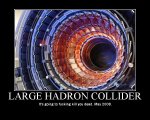^^^Word, nice. Yes, it's because the shuttle is in free fall, pure and simple. It, and the people in it, are being accelerated by earth's gravity. But, it's moving forward fast enough that by the time it falls some, the earth has already "curved away from" the shuttle It's moving forward fast enough that it falls PAST the earth instead of into it, and you get orbit. Since it's constant free-fall, you experience weightlessness. If you work out the gravitational law, you get some like you only lose 11% of the force of gravity when you get to shuttle altitude, or something like that, but certainly not all of the force of gravity. From a pure gravity point of view, if you weigh 100lbs on earth, you'll weigh 89lbs at the altitude of the shuttle if you had a way to measure the weight.
And you have the explanation of mass vs. weight almost right. You're right, mass doesn't change, but weight does. Weight is the effect of the force of gravity on a mass. Your mass on earth and your mass if you were on the moon will be equal. But you will weigh less on the moon than on earth since the force of gravity is smaller on the moon due to it's smaller mass. The units get funky and it does get confusing because people use it both ways, but to me and most people I know, lbs are units of weight, and they are actually units of force. A pound does not always correlate directly to kilogram, the SI unit of mass, a pound correlates to a newton, the SI unit of force. So the unit pound is actually a force (at least the way every science person I know of does it), so it is a weight, not a mass. This is another area where still using "standard" instead of metric in the US is stupid, because some people correlate kilograms to pounds, which is ok, but it makes things confusing when you use pounds as both a mass and a force. But in general, I think most people think of them as a force instead of a mass.
 Maybe you would just die before from the huge gravitational acceleration right after you lose conciousness.
Maybe you would just die before from the huge gravitational acceleration right after you lose conciousness.



